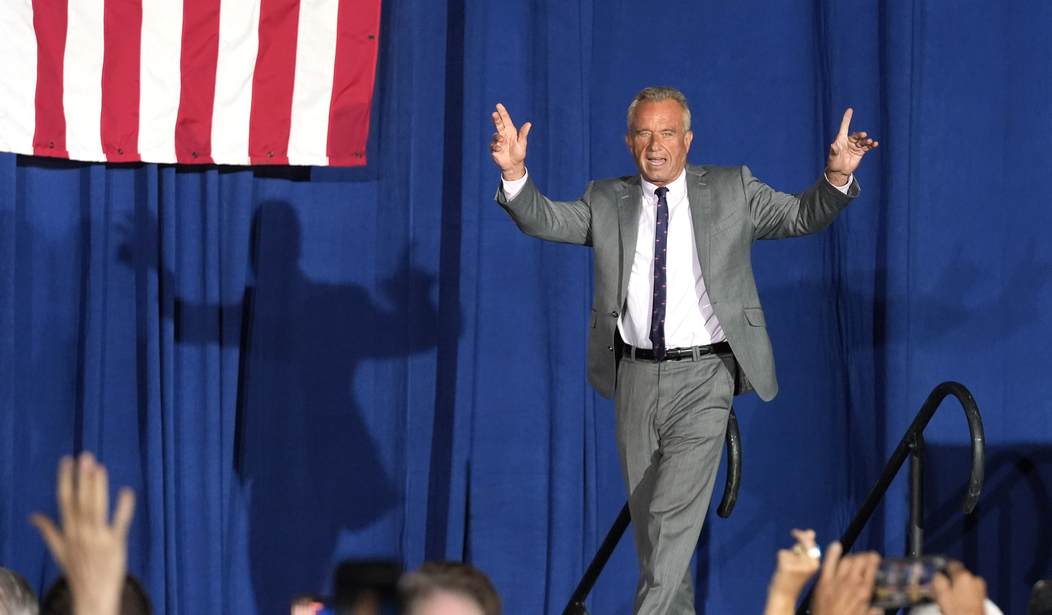No one can claim that there isn't an obesity epidemic in America. It's been the topic of countless news stories and has spawned all kinds of futile movements to get Americans healthier. Now that Robert F. Kennedy Jr. is going to be in a position to do something about it, and I mean really do something about the root causes, the mainstream is doing everything they can to downplay the crisis in favor of undermining the movement to make America healthy again.
This past week, the New York Times lamented how "Boxes of brightly colored breakfast cereals, vivid orange Doritos and dazzling blue M&Ms may find themselves under attack in the new Trump administration."
As Mr. Trump’s choice to head the Department of Health and Human Services, he would have far-reaching authority over the Food and Drug Administration, which regulates about 80 percent of the nation’s food supply. That includes shaping regulations on packaging that declares something “healthy” or discloses the amounts of sugar, salt and other ingredients in most packaged foods.
But in vowing to upend the nation’s food system, Mr. Kennedy is taking a direct shot at Big Food, one of the country’s most powerful industries whose traditional allies are Republicans. Even something as simple as removing artificial dyes is likely to result in a knockdown battle for the multibillion-dollar food sector, which is wary of higher manufacturing costs or a dip in sales of products favored by loyal consumers.
The paper notes that "The rise of Mr. Kennedy and the Make America Healthy Again movement are making the food industries particularly nervous."
Related: Here Are The Top Contenders To Replace JD Vance in the Senate
“When political ideologies are used to create fear and disregard the role of science, it undermines public trust in food safety and can cause consumers, particularly those in vulnerable populations, to lose access to safe, nutrient-dense foods,” Sarah Gallo, a senior vice president of product policy for the Consumer Brands Association, a lobbying group for the food and beverage industry, told the New York Times.
The paper also notes that "getting the food industry to change its formulations may not be easy."
But here is the best part. Note carefully how the New York Times attempts to fact-check Kennedy's claims about artificial ingredients.
Nearly a decade ago, companies responded to public pressure, and Kellogg’s, Mars and General Mills removed synthetic colors from cereals and snacks. Some companies said sales slumped because consumers missed the bright colors, so they reverted to those ingredients.
Mr. Kennedy has singled out Froot Loops as an example of a product with too many artificial ingredients, questioning why the Canadian version has fewer than the U.S. version. But he was wrong. The ingredient list is roughly the same, although Canada’s has natural colorings made from blueberries and carrots while the U.S. product contains red dye 40, yellow 5 and blue 1 as well as Butylated hydroxytoluene, or BHT, a lab-made chemical that is used “for freshness,” according to the ingredient label. [emphasis added]
Yeah, they're roughly the same ingredients... except for all of the artificial ingredients! How silly of RFK Jr. to use Froot Loops as an example!
No one said this would be easy, but if public health is, in reality, a priority for everyone, the message wouldn't be to undermine or dismiss Kennedy's goals but to point out how necessary they are.










Join the conversation as a VIP Member